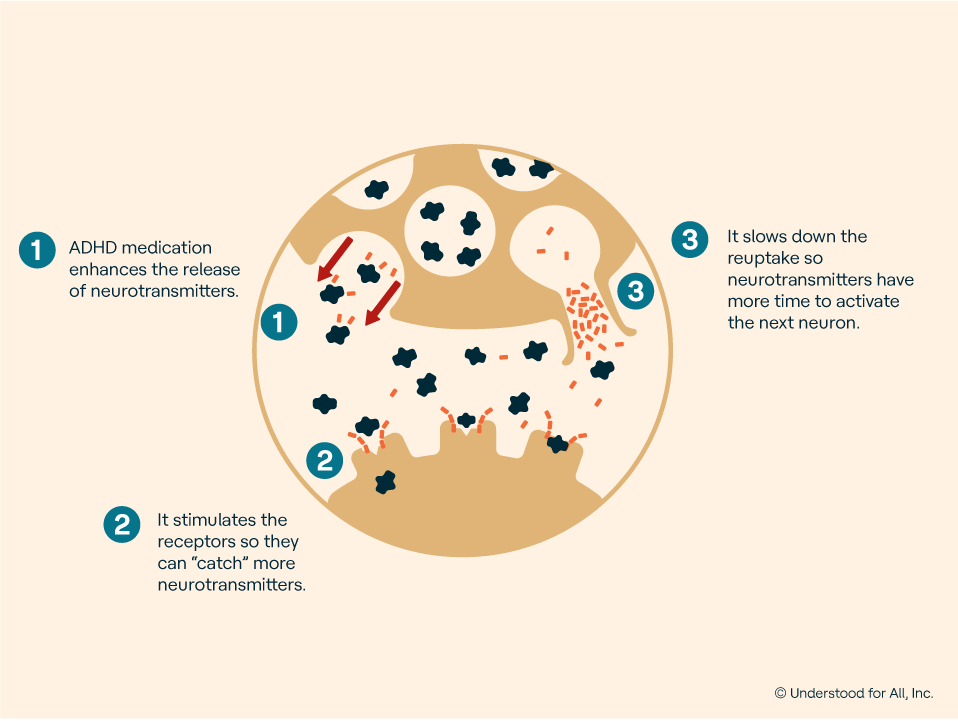Mental Health Services Offering Individualized Support
Mental Health Services Offering Individualized Support
Blog Article
Discovering Reliable ADHD Therapy Options for All Ages
The complexities of Attention Deficit Hyperactivity Disorder (ADHD) present unique challenges across various age teams, requiring a thorough expedition of effective treatment choices. A combination of behavior modifications, pharmacological interventions, and lifestyle modifications has actually shown promise in attending to the diverse demands of individuals with ADHD. The efficiency of these approaches can vary substantially based on individual situations, increasing essential questions regarding tailored techniques. As we take a look at the range of therapy modalities offered, it comes to be necessary to think about not just their immediate impacts however additionally their long-term effects for individuals and families.
Understanding ADHD and Its Impact
Attention-Deficit/Hyperactivity Condition (ADHD) is a neurodevelopmental problem characterized by consistent patterns of inattention, hyperactivity, and impulsivity that can substantially affect various facets of a person's life. It typically manifests in childhood, although signs and symptoms can continue into their adult years. The core symptoms of ADHD can interfere with instructional efficiency, prevent social interactions, and complicate job-related ventures.
Individuals with ADHD often struggle with keeping emphasis on tasks, arranging tasks, and following up on instructions, which can lead to academic underachievement (Depression Treatment). In social contexts, impulsivity may result in problems in creating and sustaining relationships, as people might disrupt conversations or make hasty decisions without taking into consideration effects
The variability in signs and symptom discussion suggests that ADHD can impact people in different ways, requiring an individualized approach to management. Comprehensive understanding of ADHD's nature and effects lays the groundwork for discovering suitable treatment choices customized to each individual's demands.
Behavioral Therapies for ADHD
Various behavior treatments have been created to efficiently address the obstacles associated with ADHD, concentrating on modifying particular habits and fostering crucial abilities. Among the most acknowledged methods are cognitive-behavioral therapy (CBT), moms and dad training, and social abilities training.
CBT helps individuals identify and change adverse idea patterns and habits, advertising a much more positive expectation and enhanced self-regulation. This therapy commonly consists of useful techniques for handling impulsivity and enhancing organization. Moms and dad training programs encourage caregivers by equipping them with strategies to enhance favorable habits and set constant borders, which can be specifically advantageous for youngsters with ADHD.
Social abilities training is another important element, teaching people with ADHD how to engage efficiently with peers - Depression Treatment. This strategy often entails role-playing and comments to enhance communication, teamwork, and problem resolution abilities
Including these behavior modifications right into a thorough therapy plan can substantially boost operating and lifestyle for people with ADHD. Ultimately, the effectiveness of these therapies depends on customized approaches that consider the unique requirements of everyone, consequently promoting resilience and adaptability in every day life.
Drug Options Available
For lots of individuals with ADHD, medicine can play a substantial role in managing symptoms and enhancing general performance. The 2 primary groups of drugs prescribed for ADHD are stimulants and non-stimulants.
Energizers, such as methylphenidate and amphetamine-based medications, are the most typically made use of therapies. These medicines function by raising the levels of neurotransmitters, especially dopamine and norepinephrine, in the brain, which assists enhance interest and reduce impulsivity and attention deficit disorder. They commonly yield rapid outcomes, making them a preferred choice for distance counseling several patients.

It is important for health care service providers to conduct an extensive evaluation to determine one of the most proper medicine based upon private requirements, depression symptoms medical history, and potential negative effects. Routine follow-up and tracking are also important to make sure the effectiveness of the picked treatment and to make any needed changes.
Way Of Living Adjustments to Think About
Managing ADHD properly expands past medication, as way of life adjustments can considerably improve general wellness and sign control. Integrating organized regimens is crucial; constant timetables aid people with ADHD manage their time effectively and decrease sensations of bewilder.
Normal physical activity is an additional important component. Exercise not just aids to improve focus however likewise enhances state of mind and reduces anxiety degrees. Activities such as yoga or group sports can be especially useful, promoting both physical health and fitness and social communication.
Nutrition additionally plays a pivotal role. Depression Treatment. A well balanced diet regimen rich in omega-3 fatty acids, entire grains, and lean proteins can add to improved emphasis and cognitive function. Restricting sugar and processed foods is a good idea, as these can intensify attention deficit disorder and impulsivity
Sleep hygiene is vital for taking care of ADHD signs and symptoms. Establishing a normal sleep timetable and producing a relaxing environment can boost sleep high quality, causing far better focus and emotional policy.
Alternative and Holistic Methods
Different and holistic techniques to ADHD therapy provide a varied variety of alternatives that complement traditional methods. These techniques frequently concentrate on lifestyle adjustments, nutritional interventions, and restorative practices that intend to enhance total wellness while attending to ADHD signs and symptoms.

Mindfulness and behavior modifications are also getting traction as alternative treatments. Practices such as yoga, meditation, and cognitive-behavioral therapy can cultivate self-regulation and boost attention. These methods sustain psychological strength, which is especially useful for people with ADHD.
Organic supplements, such as ginkgo biloba and ginseng, are occasionally explored; nevertheless, it is essential to seek advice from health care professionals prior to incorporating these right into treatment plans. While option and holistic techniques can give important assistance, they need to ideally be used along with evidence-based treatments to attain optimum results for managing ADHD across all ages.
Final Thought
In recap, reliable ADHD therapy demands a detailed approach that consists of behavior therapies, drug, way of living adjustments, and all natural methods. This diverse approach highlights the relevance of individualized care in addressing the varied requirements of individuals with ADHD throughout all age teams.
Report this page